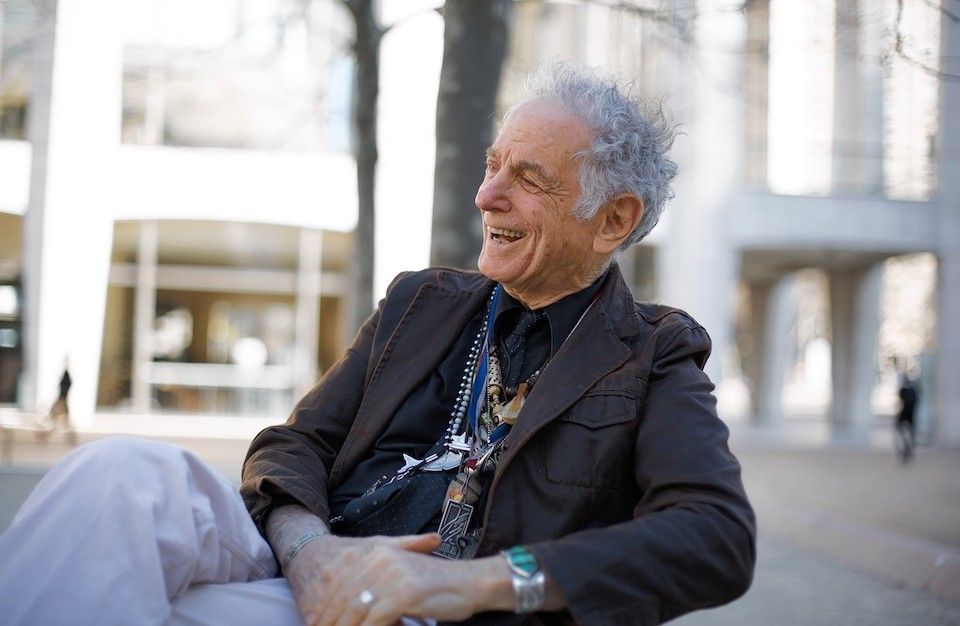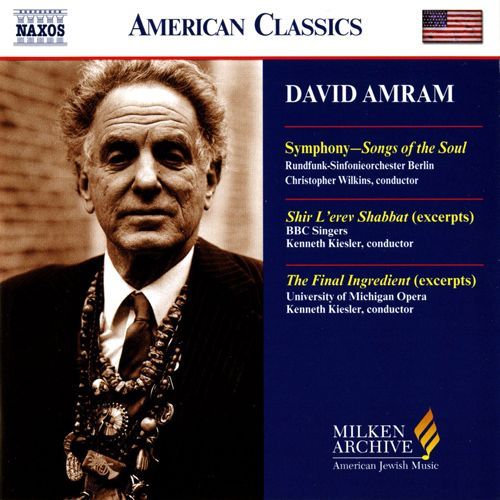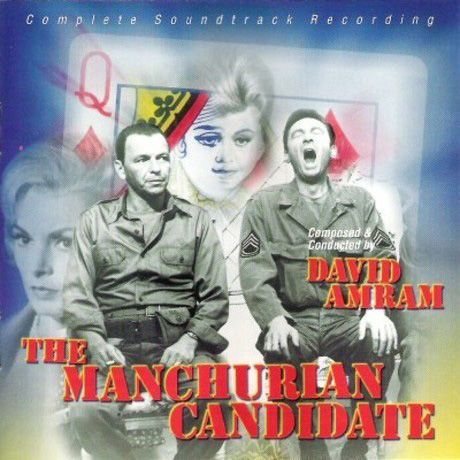David Amram 1930-

David Amram remains one of America’s most profoundly expressive composers. Like Leonard Bernstein, who appointed him as the first composer in residence for the New York Philharmonic, Amram refused to be pigeon holed or labeled by a single genre or musical style. He has written opera, classical, folk, jazz, Native American, and motion picture music. Of the latter, it can safely be stated that the least is known. Amram’s first film score was for ECHO OF AN ERA, a documentary motion picture produced in 1956 about the dismantling of New York City’s third avenue elevated subway line. In 1958, director Elia Kazan asked the composer to write the music for his Broadway production of “J.B.,” a play by Archibald MacLeish, written in verse and based upon the biblical “Book of Job,” winning a 1959 Pulitzer Prize for drama. He began scoring short films during the “Beat Generation” for his friend and colleague, Jack Kerouac, in 1959 with PULL MY DAISY.

Coming out of the Jack Kerouac era of jazz poetry, David Amram has maintained a long and notable career as a jazz performer and composer of varied orchestral and chamber works, including Broadway theater, and some half dozen Hollywood films, most notably John Frankenheimer’s THE MANCHURIAN CANDIDATE (1962). With the subsequent withdrawal of that film from the public in the wake of the JFK assassination – which it prefigured through its conspiratorial plot – Amram’s brilliant score was lost as well. Now that the film has become available again, Amram’s score can also be appreciated on a new CD and within the context of the film on video and laser disk. Interviewed in February, 1998, the 67-year old Amram described his involvement with film music, his musical psychologies for THE MANCHURIAN CANDIDATE and his new PBS documentary score.
Reviews

Amram’s Symphony is a melting pot of Jewish musics, a polycultural exploration that embraces disparate traditions and does so with colour and verve. Whether it’s Ethiopian chants in the first movement – with attendant brass and percussive high points – or his own Nigun melody, an original Hassidic invention, in the second, the ear is constantly beguiled by incident. Affectionately warm one moment, joyously brassier the next, ever laced with the rhythmic dramas of the percussion section, we come face to face with a spirit of optimism and involvement. Few others than Amran would mine a Yemenite dance for his third movement finale, by some way the longest of the movements. Here we find more avuncular cymbal clash and klezmer meld; colourful, exciting with a real openness of mind and spirit; and a delightful way of reintroducing the earlier themes at the finale’s conclusion.

It took 35 years, but David Amram’s masterful jazz-based score for John Frankenheimer’s elusive political thriller is available in complete form, including several elements not fully heard in the film. While jazz-based, the score is more than just a jazz score. Amram reaches the film’s psychological underpinnings and accentuates what’s going on behind the scenes. His gentle trumpet main theme, representing the tragic Laurence Harvey figure, the hero soldier whose brainwashing has made him into an unknowing assassin, not only captures the past nobility of the man but portends his ultimate heroic sacrifice at the film’s end.



